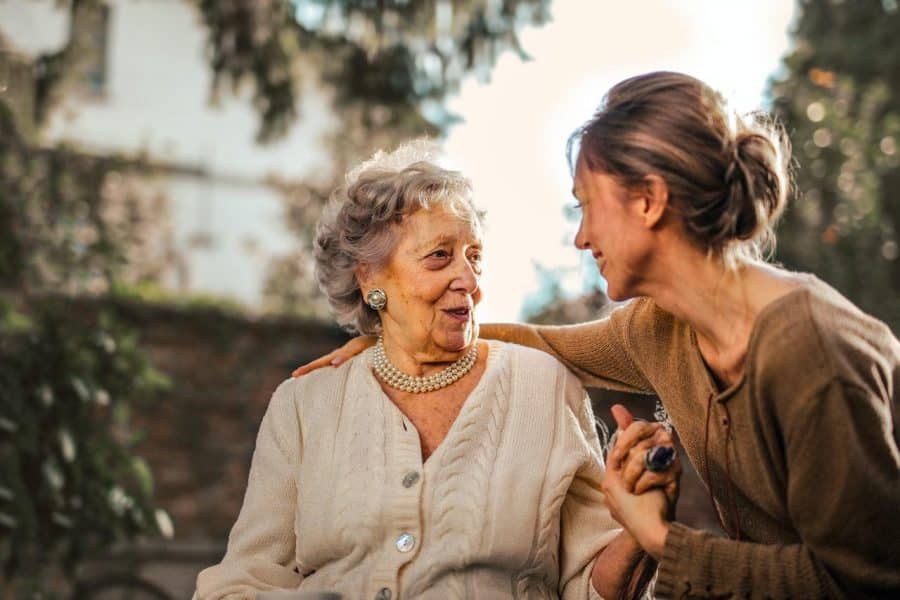While a lot of seniors, and younger people also, tend to see the milestone of moving into a retirement community as a grim one, it need not be that way. Moving into such a community can be a refreshing new lease on life for an older person. They’ll be surrounded by people with similar interests and beliefs, and be tended to 24/7 by specialized individuals with a lot of experience in taking care of their every need, from spiritual to physical. Whether you’re a caregiver or a relative, here are a few suggestions to help you understand why you need to handle this delicate subject with care and empathy when bringing it up with your senior person.
Decide if Your Senior Truly Needs to Move
This isn’t a decision to be taken lightly, and there are certain signs you should look out for before proposing such a move to your senior person. Things such as not being able to pay bills anymore, poor hygiene, the inability to cook or frequent falls are tell-tale signs that your senior person might be facing a situation where they can’t be independent anymore. There are other signs, but these are just a few of the more common ones. It’s also helpful to start this discussion as early as possible, before things get worse.
Transitioning from full independence to assisted living isn’t easy, and it’s important to keep in mind that even though your senior person might be having trouble with basic things, they’ll still try their hardest to appear fully functional. Also, remember that this isn’t necessarily an age issue. An eighty-year-old senior person might be more independent than a seventy-year-old, depending on what sort of ailments they suffer from. Don’t rush into this just because your senior person is old, that’s simply not the way this works.
2. Try to Empathize
One of the most important things you can do for a senior person, when it comes to such a delicate situation, is to empathize with them. Try to put yourself in their shoes, and feel what they’re feeling. What you, as caregivers or relatives, need to understand is that the decision to move into a retirement community needs to come from the seniors themselves, and not from the people around them. Having to leave behind the house where they’ve probably spent the better part of their lives is not easy to do, no matter the reason.
What a senior person wants, first and foremost, is to be heard. Pay close attention to what the senior is saying, and try to ease their worries as much as possible. Don’t just blindly bring up the benefits such a move would have on their well-being, and try to avoid sounding as if the only reason you want them to move is so that your own problems are abated. This isn’t about you, or your issues, this is about them having to leave their home behind, and having to move into a strange, new place where they’ll have to adapt to living into from scratch.
3. Find a Retirement Community Personalized to Your Senior Person’s Needs
Not all retirement communities are created equal, and you will need to have a long discussion with your senior person regarding what they expect from such a community, and what their needs are. You will also need to take into account what sorts of ailments they suffer from. A senior person with Alzheimer’s Disease will need specialized care and supervision around the clock, whereas someone who is simply dealing with loneliness and mobility issues might be better served living in a community that allows them to still be somewhat independent.
Whatever the situation, don’t rush into this. Finding the right retirement community takes time and effort, just like with anything in life. Take a tour with your senior of the different retirement communities in your area, let them talk to the higher-ups, and let them see how the day-to-day activities are organized. Remember, your senior person isn’t a child, they’ve lived a full life, and they need to be treated as an adult. The best and happiest scenario is one in which your senior person chooses their own retirement community.
4. Consider the Logistics
Just like with any move, you need to consider the logistics of it all. How many items does the senior person have, and how will you move them all to the retirement community? While you could do it all by yourself, some people opt to hire professional movers to help them out. Florin, owner of an NYC movers company, has helped a lot of seniors move into retirement communities in his ten years of owning the business. Not only will hiring a moving company let you focus on other things, but it will also take a load of your mind, knowing that professionals are dealing with the packing and transportation of the items to their new location.
You could also opt to do the move yourself, but in such a case you’d definitely need to call on the help of friends and family. While you might not have to move furniture, depending on how many items the senior person has, you’ll probably need to do several trips. It’s also added stress, having to deal with such a complicated process, not only on yourself but on the senior person as well. That’s not to say it can’t work out, just that it will probably be a bit harder than you’re expecting it to be.

Isreal olabanji a dental assistant and public health professionals and has years of experience in assisting the dentist with all sorts of dental issues.
We regularly post timely and trustworthy medical information and news on Fitness, Dental care, Recipes, Child health, obstetrics, and more.


